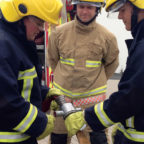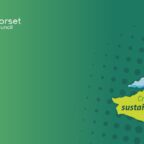 16-18
16-18

Computing and IT

Construction & Building Services

Creative & Visual Arts

SEND Provision

Sport & Public Services

T-Levels

Travel, Tourism & Events
 Apprenticeships
Apprenticeships

Accountancy & Bookkeeping

Business & Administration

Catering & Hospitality

Construction & Building Services

Engineering & Automotive

Hair & Beauty

Health, Social Care & Early Years

Teaching
 University Level
University Level

Engineering & Automotive

Health, Social Care & Early Years

Sport & Public Services
 Adult Learning
Adult Learning

Access to Higher Education

Accountancy & Bookkeeping

Creative & Visual Arts

Dorset Training Academy

Electrical

Green Skills

Hair & Beauty

Teacher Training
 Biology
Biology
Biology A Level
In Short
A Level Biology A offers an exciting, context-based approach to learning about the natural world. This course has been designed to motivate students by helping them realise how an understanding of many of today’s contemporary issues require the knowledge and understanding of underpinning biological principles. Placing things in context makes learning more interesting and relevant. The themes include: cardiovascular diseases, cystic fibrosis, genetic control of human development, biodiversity and natural resources, climate change, infection and immunity, the nervous system.
100% pass rate in A Level Biology in 2020 – 9.6% above National Average
“A level science means studying in depth – our teachers have experience and knowledge that makes study really enthralling” Dylan
Entry Requirements
At least 5 GCSEs at Grade 9-5 including English and Grade 6 (B) in Maths, as well as either Grade 66 (BB) in Double Award Science or 6 (B) in Biology.
Course Content
This course helps you to realise how an understanding of today’s issues requires knowledge of underpinning biological principles. By placing things in context, you will learn the facts at the same time as appreciating their real importance. You will develop practical skills of observation, formulation of hypotheses, design of experiments, and collection and analysis of data. There is an element of fieldwork, enabling you to identify relevant topics, plan and carry out research, and analyse findings.
AS units
- Lifestyle
- Transport
- Genes and health
- Development
- Plants and the environment
A2 units
- Environment and survival
- Energy
- Exercise and coordination
Progression
A Levels are suitable entry to university as well as a great way of demonstrating your capabilities to potential employers. A Levels open up a wide choice of career opportunities, many of which would require you to study at higher education level and will require the correct mix of A Level qualifications. Contact our careers advice and guidance department for further assistance. The following table gives an example of the possible career routes for each subject.
Your Tutors - Helen Hoon & Edmund O'Malley
Fees
If you are aged 16-18 as of 31 August on the year of enrolment – no course fee.
If you are over 19 as of 31 August and enrolling on a full-time programme of study a tuition fee will be applicable in most cases. Bursary funds There are financial support arrangements for 16-18 year olds and hardship funds available for the over 19s. Please contact reception for details of costs and concessions on 01305 761100 or email enquiries@weymouth.ac.uk









